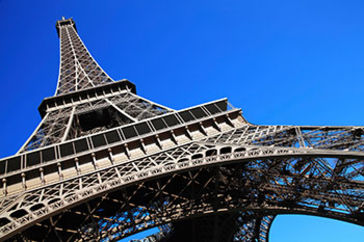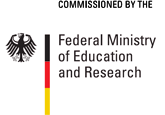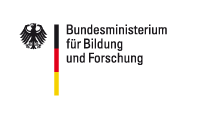France is Germany’s most important cooperation partner among EU member states. Close cooperation exists in many thematic areas and at different levels: ministries, research, educational and scientific organisations and in projects and initiatives. Exceptionally extensive cooperation activities have developed between Germany and France in the last 60 years.

© TonyBaggett / iStock / Thinkstock
Funding opportunities
The funding opportunities for Franco-German cooperation are diverse and are offered by various institutions on a topic-specific basis. Information about funding possibilities is available from the International Bureau or the Federal Funding Agency. Information on funding opportunities for cooperation with France is available at the web portal Kooperation international.
News
On 9 and 10 October 2023, Germany and France held for the first time a joint cabinet retreat in Hamburg to express the special quality and solidarity of relations between the two countries and to exchange about current global political issues. Both governments discussed how social cohesion can be organised in phases of upheaval and how Europe's technological sovereignty can be further promoted and advanced. One focus here was on the area of artificial intelligence.
In addition to the talks between Chancellor Scholz and President Macron, consultations were also held between the ministers of both cabinets. On behalf of the Federal Ministry of Education and Research (BMBF), Parliamentary State Secretary Dr. Jens Brandenburg held talks with French Research Minister Sylvie Retailleau and the then French Education Minister Gabriel Attal. Topics included artificial intelligence, hydrogen and battery research, cybersecurity and exchanges in vocational education and training.
On 22 January 2023, Franco-German Day, the two governments met in Paris for the Franco-German Council of Ministers to mark the 60th anniversary of the Élysée Treaty. They adopted a Joint Declaration. The focus was on Franco-German friendship and close cooperation on current European, economic and international issues. The two research ministers, Bettina Stark-Watzinger and Sylvie Retailleau, then exchanged views on important cooperation topics such as battery research, artificial intelligence and high-performance computers as well as European innovation networks. Outstanding examples from the large number of projects and initiatives are the joint engagement in the Franco-German Forum of the Future and the new German-French cooperation with West African countries in the fight against climate change. Learn more…
The International Bureau at DLR Projektträger supports the Federal Ministry of Education and Research in Franco-German cooperation and in particular in the preparation, implementation and follow-up of events as well as technical and political meetings and talks.
Political framework
Treaties and agreements
The German-French cooperation is based on the 'Cultural Treaty between the Government of the Federal Republic of Germany and the Government of the French Republic', which became effective in 1955. On 22 January 1963, the Elysée Treaty was signed between Germany and France. Several treaties and agreements supplement this treaty, which have been concluded between the ministries responsible for research and between the major German and French research organisations since then.
With the Treaty of Aachen, signed by the German Chancellor and the French President on 22 January 2019 and which came into force in January 2020, both countries reaffirmed the importance of this cooperation.
Franco-German Council of Ministers
The Franco-German Councils of Ministers form the political framework for bilateral cooperation. Regular coordination takes place there at the highest political level with regard to Franco-German cooperation in the key areas of education, research and innovation.
On October 9 and 10, 2023, a cabinet meeting of both governments took place in Hamburg. The last Franco-German Council of Ministers met in Paris on 22 January 2023 (see 'News'). Before that, the two governments met at the Franco-German Council of Ministers on 31 May 2021 in Berlin (virtually). They then reaffirmed their determination to work even more closely together and to work jointly for a strong, future-oriented and sovereign Europe. The well-advancing implementation of the Aachen Treaty was acknowledged, new priority projects were identified and the Franco-German Declaration of Berlin was endorsed. Within the framework of the Council of Ministers, the two research ministers also exchanged bilaterally on important cooperation topics in the field of research and innovation. Germany and France are jointly developing solutions for the most important future-oriented topics such as cyber security, new communication technologies and artificial intelligence. The topics of quantum computing, health, climate and a sustainable energy supply also play a major role in the cooperation.
Federal Minister of Education and Research, Bettina Stark-Watzinger exchanges regularly with the French Minister of Higher Educaiton and Research Sylvie Retailleau on priority topics for the cooperation.
Priorities of the cooperation
The thematic priorities of the bilateral cooperation primarily result from the annual Franco-German Councils of Ministers and the Joint Declarations adopted on that occasion. The Aachen Treaty, which came into force in 2020, and includes projects of priority also sets thematic priorities for the cooperation. In terms of content, these priorities are substantiated by the Fora for Franco-German Research Cooperation, which have taken place regularly every 3 or 4 years since 2002 (see Highlights of the bilateral cooperation).
Institutional Cooperation
Centre Marc Bloch
The Centre Marc Bloch (CMB) is a Franco-German research center for social sciences that was founded in 1992 and conducts interdisciplinary research and promotion of young people in the humanities and social sciences with research topics in Central and Eastern Europe. Since 2011, the CMB has been closely linked to the Humboldt University in Berlin as an 'affiliated institute' through a cooperation agreement. In March 2015, the CMB received its own legal personality as a registered association with joint German-French sponsorship. In 2022, the CMB celebrated its 30th anniversary with a ceremonial act and a series of events in Berlin.
Franco-German University
The Franco-German University, founded on the occasion of the German-French summit in Weimar 1997, is another important binational institution. The Franco-German University is a key player in the cooperation between Germany and France in the field of higher education. Its core business consists of initiating, evaluating and financially supporting Franco-German courses. The Franco-German University also promotes young scientists through Franco-German doctoral colleges and scientific events. It currently cooperates with 208 German and French universities that offer 186 cross-border study programmes in various disciplines. Around 6,400 students and 350 doctoral students take part in them.
Vocational education and training cooperation
The stated target of the vocational education and training cooperation is to further strengthen the mobility of students and apprentices between Germany and France using the European education and youth programme Erasmus+ and ProTandem, the German-French Agency for exchange in vocational education. The aim of the exchanges made possible by ProTandem is to enable a working stay of the participants in the other country and to strengthen skills in professional, linguistic and cultural areas. Since 1980, the programme has supported the exchange of around 110,000 trainees.
In 2023, the Federal Ministry of Education and Research (BMBF), the Federal Ministry of Labour and Social Affairs (BMAS) and the French Ministry of Labour have negotiated the content of a Franco-German agreement on cross-border vocational training. The agreement will standardise the cross-border framework for dual vocational training and make it more transparent in order to give new impetus to cross-border cooperation in vocational training. This allows trainees to complete the practical part of their training in a company in the partner country, while the theoretical training and the examination take place in their home country.
Highlights of the bilateral cooperation
Forum for Franco-German Research Cooperation
The Fora for Franco-German Research Cooperation, which have taken place since 2002, are of key importance in the bilateral cooperation. The goal of these fora is to coordinate at high level Germany’s and France’s research and innovation policy strategies and priorities. Following the fora in Paris (2002, 2008, 2014), Potsdam (2005) and Berlin (2011, 2018), the last forum took place on 9 December 2022 at the 'Maison Internationale' in Paris. Almost 170 representatives of the MESR and the BMBF, of German and French research and intermediary organisations and from other institutions from the context of Franco-German research and education cooperation took part in the forum. In particular, the diversity of Franco-German research cooperation was considered. In two round tables, representatives of the German and French research organisations discussed the topics 'Research cooperation in times of crisis and scientific diplomacy' and 'France and Germany - strong partners in European interaction'. In addition, concrete new measures for cooperation in the field of battery research, artificial intelligence, hydrogen and combating climate change were discussed together with West African partners in parallel workshops.
Background information on the research landscape
Sylvie Retailleau has been the French Minister for Higher Education and Research since 20 May 2022. The Ministry of Higher Education and Research (MESR) is responsible for the preparation and implementation of policies in higher education, research and innovation. The Ministry for National Education, Youth and Sports under Minister Nicole Belloubet, who has been in office since 8 February 2024, is responsible for education policy.
In December 2020, the law on programming for research and higher education for 2021 to 2030 was endorsed with a corresponding financial framework of 25 billion euros and accompanying reforms ('Loi de programming de la recherche pour les années 2021 à 2030').
The main French research organisation is the National Center for Scientific Research (CNRS), which reports to the Ministry of Higher Education, Research and Innovation and is dedicated to basic research. The CNRS employs 32,000 people and is divided into eight departments: Nuclear and Particle Physics, Engineering Sciences, Earth Sciences, Humanities and Social Sciences, Life Sciences, Chemistry, Physical and Mathematical Sciences, and Communication, Information Sciences and Technology.
Funding in France
In France, institutional research and development funding is organised by the Ministry of Higher Education and Research (MESR). Competitive project funding of basic research and development is provided by the National Agency for Research Funding (ANR), the Public Investments Bank (BPIfrance) and the Agency for Ecological Transition (ADEME). In addition, agencies such as the Cluster 'Pôles de Compétitivité' and regional research and technology officers support regional site policy. France also maintains one of the largest tax funding programmes for industrial research and development in the world, the Crédit d‘impôt recherche (CIR).
Cooperation at European level
France and Germany play a key role in the European Union research funding programmes. In the EU Framework Programme Horizon 2020, 90 percent of projects include German-French involvement in the New Materials and Nanotechnology areas, the figure is 80 percent in the field of Health and Transport. The current 'Horizon Europe' Framework Programme has 1,140 projects with French participation, 626 of them with German participation (as of February 2023).
At the strategic level, both countries also cooperate closely as powerhouses of Europe, such as in the design of the European Research Area and in many EU Member State committees. Germany and France are involved in a large number of major European initiatives and networks, such as Joint Programming Initiatives, ERA networks, European Technology Platforms (ETPs), European Infrastructure Consortia (ERICs) and Knowledge and Innovation Communities (KICs).










